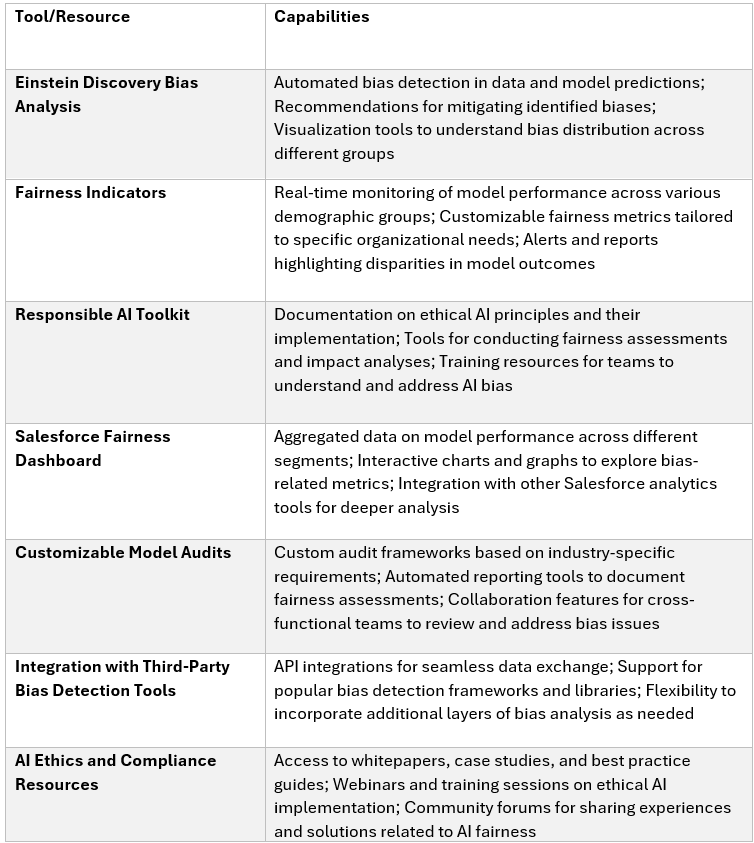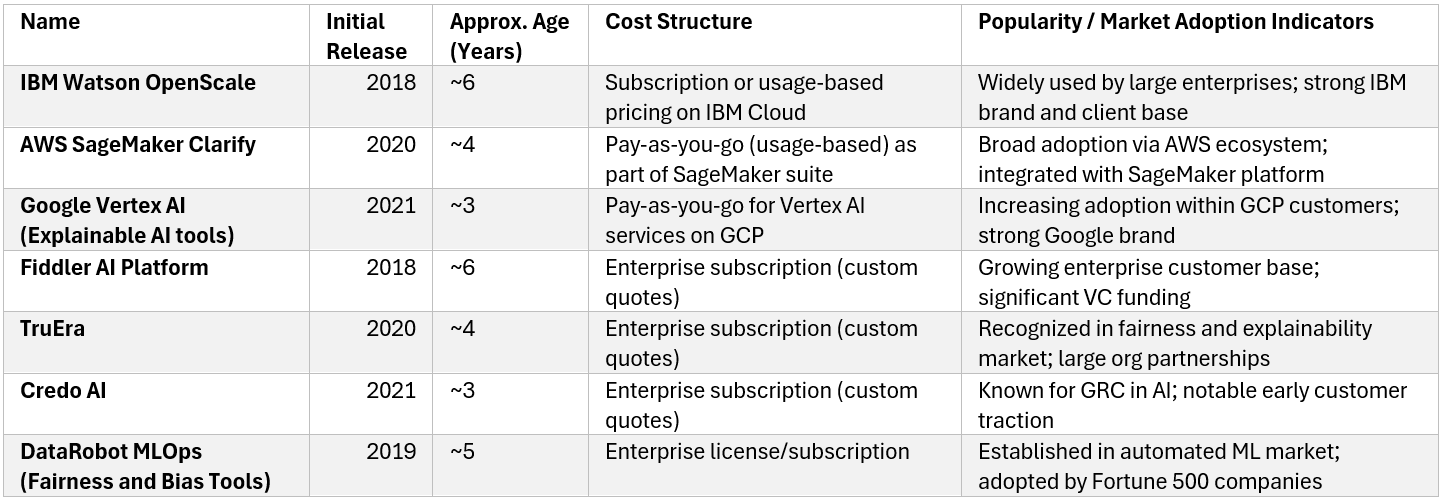Right now, in the United States, lawyers are actively pursuing cases against websites that aren't ADA-compliant. It's only a matter of time before the focus shifts to AI discrimination and bias. When that happens, will your business be ready?
The Evolving Challenge of Building Software
Traditionally, building software has been explained through the Iron Triangle—you can have it fast, cheap, or good. Pick two. But in today’s AI-driven world, "good" means more than just functional software. It means building systems that are free from bias and discrimination. This adds a layer of complexity, especially when trying to balance quality and budget.
Two Approaches to AI: Enterprise Platforms vs. Custom Solutions
To better understand the challenges, let's compare two common approaches to implementing AI: enterprise platforms and custom solutions.
Enterprise AI Platforms (e.g., Salesforce Einstein)
Salesforce’s Einstein AI platform provides an example of how enterprise solutions handle bias prevention. It includes:
- Tools that show which factors influence predictions
- Data management systems for cleaning and curating datasets
- Guidelines for responsible AI usage
However, Salesforce doesn't take legal responsibility for how its platform is used. The company provides tools, but the user (your business) is responsible for proper implementation. Think of it like buying a car with advanced safety features—the manufacturer provides the tools, but it's up to you to use them correctly.
Custom Solutions with Open-Source Models
On the other hand, custom AI solutions often involve open-source models that lack built-in safeguards. The quality and ethical standards of these solutions depend entirely on the consultant’s expertise. Cost-saving pressures might result in cutting corners on bias testing, which can expose your business to significant risks.
What This Means for Your Business
- For Enterprise Platforms like Salesforce Einstein:
Even though these platforms offer built-in tools to help with bias mitigation, your business is still responsible for ensuring compliance. You need to test and refine models regularly to avoid discriminatory outcomes. Think of it as a security system—you need to actively monitor and use it properly. The good news is that Salesforce provides tools to make verification easier. - For Custom Solutions with Consultants:
If you're working with consultants to build custom solutions, you face higher risks. Contracts should include clear procedures for bias-mitigation, testing protocols, and compliance with anti-discrimination laws. You'll need to ensure these steps are part of your budget and actively monitor implementation quality.
Why Proactive Action Is Critical
The U.S. currently lacks comprehensive AI regulation, creating a regulatory gap where rapid AI development often outpaces safety measures. This makes businesses vulnerable to the risks of AI bias. Without clear regulations, the legal consequences of AI discrimination could be severe.
To protect your business, take the following actions:
- Review and update contracts to address AI bias and ethical standards.
- Choose implementation partners who prioritize ethical AI practices.
- Regularly audit AI systems for potential bias.
Enterprise Platforms vs. Custom Solutions: Risks and Rewards
When enterprise platforms like Salesforce implement AI, they provide strong safeguards and have committed to ethical AI use. They have dedicated teams and resources to ensure responsible AI practices.
In contrast, custom solutions developed by consultants may lack such safeguards, especially when budget cuts pressure them to reduce testing or oversight. These consultants may also face more direct legal liability for any biases or harmful outcomes in the AI models they implement.
The Hidden Costs of Cutting Corners
While AI bias might seem abstract, it can have real and serious consequences for your business. The U.S. may be behind in regulating AI, but this only increases the risk. When problems do arise, legal repercussions could be significant and far-reaching.
How Smart Businesses Are Preparing
Smart businesses are already taking steps to prepare for AI bias risks. They’re:
- Updating contracts to cover AI implementation and compliance.
- Investing in robust testing and validation, even if it requires more time or resources.
- Ensuring that their AI systems are continually monitored for potential biases.
Don’t Cut Corners on Bias Prevention
Cutting corners when it comes to AI bias prevention isn’t just risky—it can be catastrophic. The time to prepare for AI-related legal risks is now, before they become concrete problems for your business.
Salesforce Agentforce / Einstein Bias Testing Open Source Bias Testing Frameworks
Open Source Bias Testing Frameworks Commercial Bias Testing Frameworks
Commercial Bias Testing Frameworks

